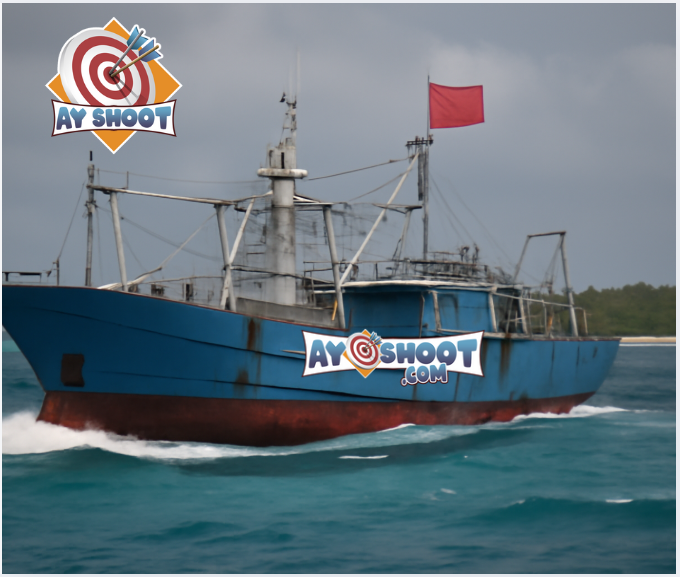June 18, 2025- Manila Philippines
On June 18, 2025, a Chinese fishing vessel ran aground near Thitu Island in the South China Sea, an area occupied by the Philippines but claimed by multiple nations, including China. The incident marks another chapter in the ongoing tensions surrounding territorial disputes in the region, which has seen frequent confrontations between military and civilian vessels from various countries.
Thitu Island, located in the Spratly archipelago, is strategically significant and has been under Philippine control for decades. Its location makes it a point of contention between China, the Philippines, and other Southeast Asian nations that lay claim to parts of the resource-rich South China Sea. The Philippines, under the leadership of President Ferdinand Marcos Jr., has maintained a strong stance on asserting its sovereignty over these territories, despite China’s repeated challenges.
The Incident: What Happened?
The Chinese fishing vessel, whose name has not been officially disclosed, was reportedly stranded on a reef near Thitu Island. The Philippine military, in coordination with the Philippine Coast Guard, swiftly responded to the situation. Filipino officials have emphasized their readiness to offer assistance to the stranded crew, but the primary concern lies in the geopolitical implications of the incident.
While the Philippines has extended its assistance to China, emphasizing humanitarian aid and rescue, the incident comes at a time of heightened sensitivity in the region. The Philippines has repeatedly voiced concerns over China’s growing military presence and activities in the South China Sea, which it views as an infringement on its sovereign rights.
China’s Growing Military and Civilian Presence in the South China Sea
China has expanded its military and civilian activities in the South China Sea over the years, despite an international ruling in 2016 by the Permanent Court of Arbitration that invalidated China’s extensive claims in the region. China’s controversial “nine-dash line” covers most of the South China Sea, including areas within the exclusive economic zones (EEZ) of neighboring countries like the Philippines.
These activities have led to tensions with the Philippines, which has strengthened its military ties with the United States in recent years, especially in response to China’s increasing assertiveness. In the past year, the Philippines has raised concerns over Chinese maritime militia vessels and the continued harassment of Filipino fishermen in the contested waters.
Philippine Government’s Response
The Philippine government, through its Department of Foreign Affairs (DFA), has issued a statement condemning the “unwelcome presence” of foreign vessels in Philippine-occupied territories. In a diplomatic note, the DFA called for a peaceful resolution of the matter and reiterated its commitment to uphold the country’s sovereignty and territorial integrity.
In a press briefing, Philippine defense officials noted that the grounding of the Chinese vessel was a reminder of the escalating risks in the region. The Philippine Armed Forces have vowed to increase their patrols in the area to ensure the protection of their territorial claims.
“We are committed to ensuring the safety of our islands and maritime territory,” said Secretary of National Defense Carlito Galvez Jr. “This incident only highlights the importance of maintaining vigilance and continuing our efforts to secure our sovereignty over these disputed waters.”
The Strategic Importance of Thitu Island
Thitu Island (known locally as Pag-asa) is the second-largest island in the Spratlys, with a small but strategic military and civilian population. The island hosts a Philippine military outpost and is home to a small civilian community that relies on fishing and agriculture. The island’s strategic location provides the Philippines with a vital presence in the Spratly archipelago, from where it can assert its claim to surrounding maritime areas rich in oil, natural gas, and marine resources.
The island has been the site of numerous incidents involving Chinese vessels over the years, including confrontations with Philippine naval ships and Filipino fishermen. China has also built artificial islands and military installations in the Spratlys, further exacerbating the tensions.
Regional and International Reactions
The incident has sparked reactions from neighboring countries and international actors. Vietnam, which also claims parts of the Spratly Islands, has reiterated its commitment to preserving regional stability and respecting international maritime laws. The United States, a key ally of the Philippines, has expressed concern over China’s activities and reaffirmed its mutual defense obligations with the Philippines.
The United States Navy has conducted joint military drills with Philippine forces in the South China Sea as part of ongoing efforts to counter China’s growing influence. Washington has called on Beijing to respect the sovereignty of its regional neighbors and abide by international law, particularly the United Nations Convention on the Law of the Sea (UNCLOS).
The Road Ahead: Tensions and Diplomacy
This latest incident underscores the continued volatility in the South China Sea, where territorial claims and military activities continue to intensify. While the Philippines and China are both calling for a peaceful resolution, the underlying geopolitical tensions are unlikely to dissipate in the short term.
As the situation continues to unfold, all eyes will be on the Philippine government’s response and the potential for further diplomatic engagements. For now, the Philippines remains steadfast in its commitment to defending its territorial claims while seeking a peaceful, rules-based approach to resolving disputes in the South China Sea.
With China’s growing presence in the region and the Philippines’ ongoing efforts to secure its sovereignty, the situation is far from settled. As the world watches, the path to lasting peace and stability in the South China Sea will depend on the delicate balance between diplomacy, military readiness, and international cooperation.
Conclusion
The grounding of the Chinese fishing vessel near Thitu Island is yet another reminder of the ongoing geopolitical tensions in the South China Sea. While humanitarian efforts are being made to assist the crew, the incident highlights the complex and volatile nature of territorial disputes in the region. As the Philippines and China navigate this challenging moment, the international community remains vigilant, hoping for a peaceful resolution that upholds the sovereignty and rights of all nations involved.
📲 For more trending updates, viral news, and tech innovations that matter to Filipinos — follow us here at Ay Shoot!
Because when it’s hot, we shoot it straight. 🔥🎯





